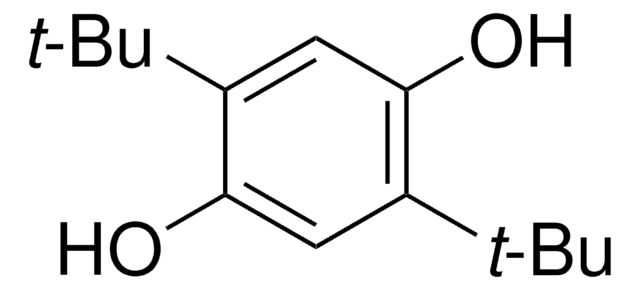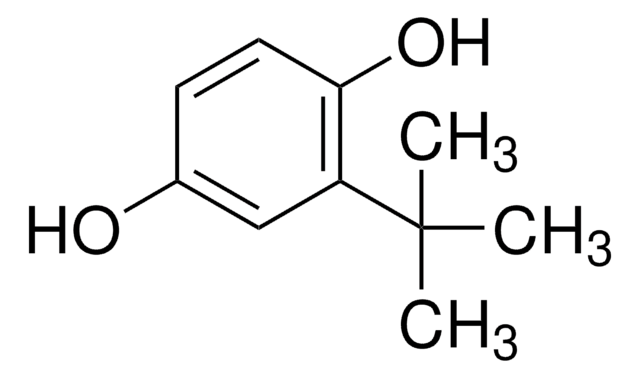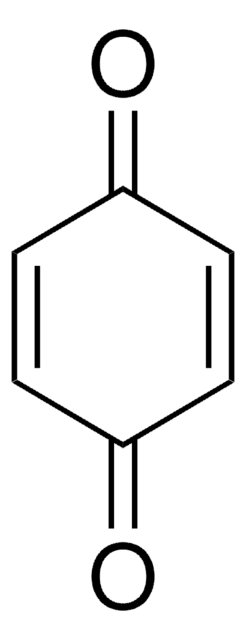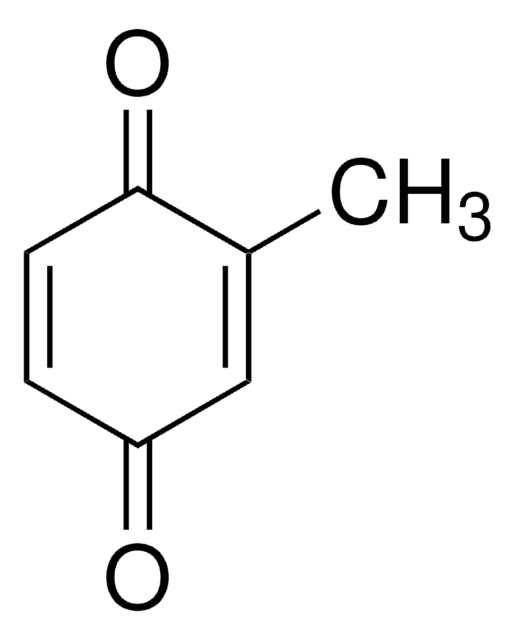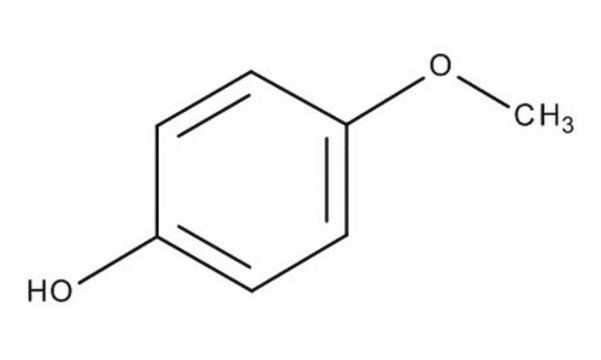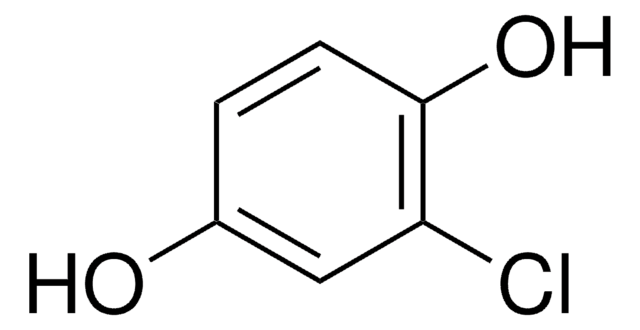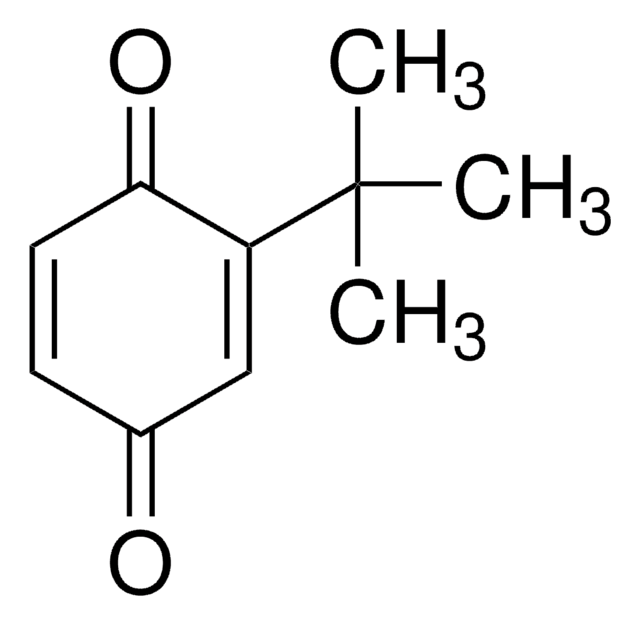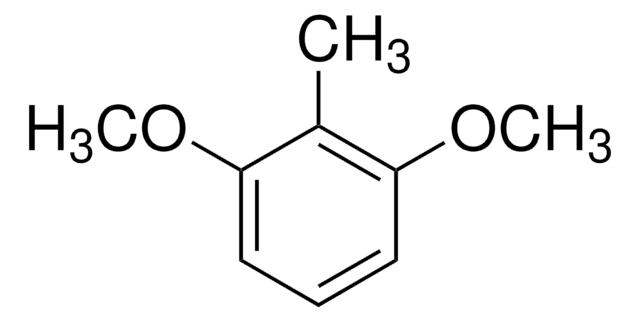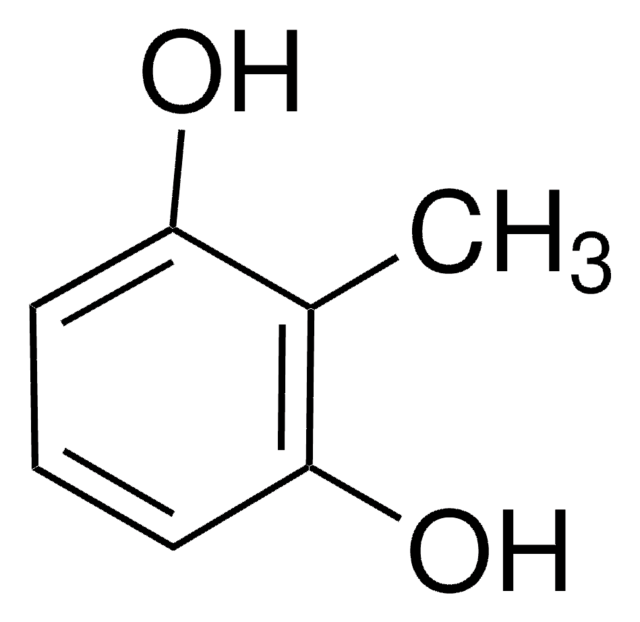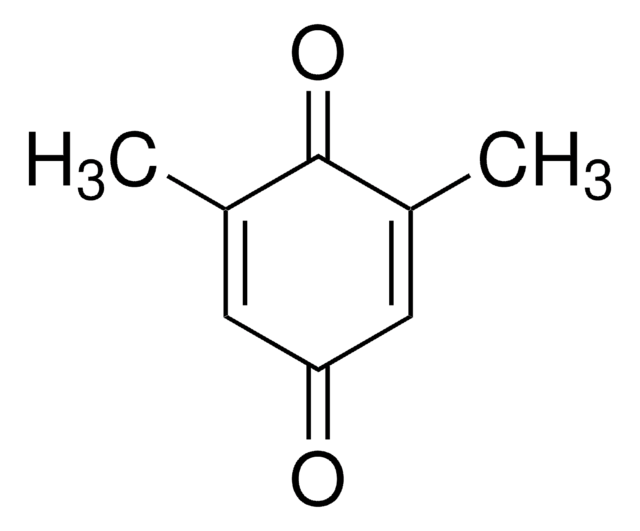112968
Methylhydroquinone
99%
Synonym(s):
Toluhydroquinone
About This Item
Recommended Products
Quality Level
Assay
99%
form
solid
autoignition temp.
851 °F
mp
128-130 °C (lit.)
SMILES string
Cc1cc(O)ccc1O
InChI
1S/C7H8O2/c1-5-4-6(8)2-3-7(5)9/h2-4,8-9H,1H3
InChI key
CNHDIAIOKMXOLK-UHFFFAOYSA-N
Looking for similar products? Visit Product Comparison Guide
General description
Application
- A semiflexible thermotropic polyester via polycondensation reaction with 4,4′-sebacoyldioxydibenzoyl chloride.
- A sesquiterpene (±)-helibisabonol A.
- poly{hexakis[(methyl)(4-hydroxyphenoxy)]cyclotriphosphazene} by reacting with hexachlorocyclotriphosphazene.
- 6-Hydroxy-4,7-dimethyl-2H-1-benzopyran-2-one by treating with ethyl acetoacetate in the presence of H2SO4 as a catalyst.
Biochem/physiol Actions
Signal Word
Danger
Hazard Statements
Precautionary Statements
Hazard Classifications
Aquatic Acute 1 - Aquatic Chronic 1 - Eye Dam. 1 - Skin Corr. 1A - Skin Sens. 1 - STOT SE 3
Target Organs
Respiratory system
Storage Class Code
8A - Combustible corrosive hazardous materials
WGK
WGK 2
Flash Point(F)
341.6 °F - closed cup
Flash Point(C)
172 °C - closed cup
Personal Protective Equipment
Regulatory Listings
Regulatory Listings are mainly provided for chemical products. Only limited information can be provided here for non-chemical products. No entry means none of the components are listed. It is the user’s obligation to ensure the safe and legal use of the product.
JAN Code
112968-BULK:
112968-250G:
112968-1KG:
112968-VAR:
Choose from one of the most recent versions:
Already Own This Product?
Find documentation for the products that you have recently purchased in the Document Library.
Customers Also Viewed
Our team of scientists has experience in all areas of research including Life Science, Material Science, Chemical Synthesis, Chromatography, Analytical and many others.
Contact Technical Service
